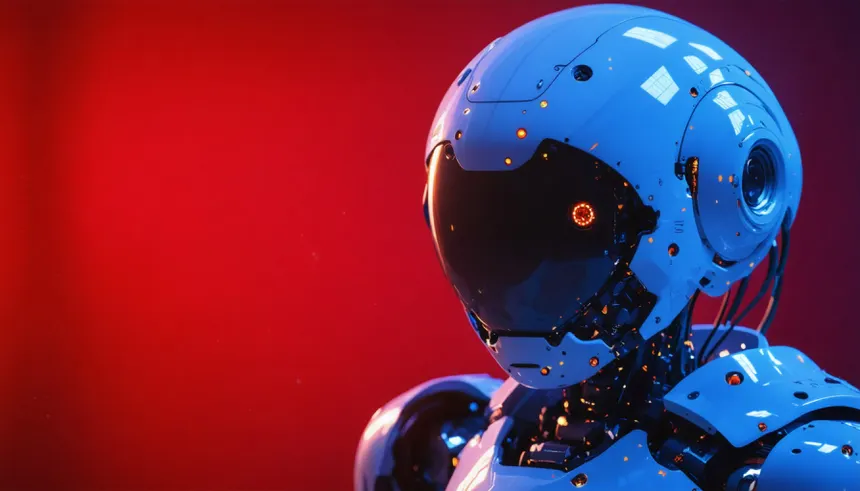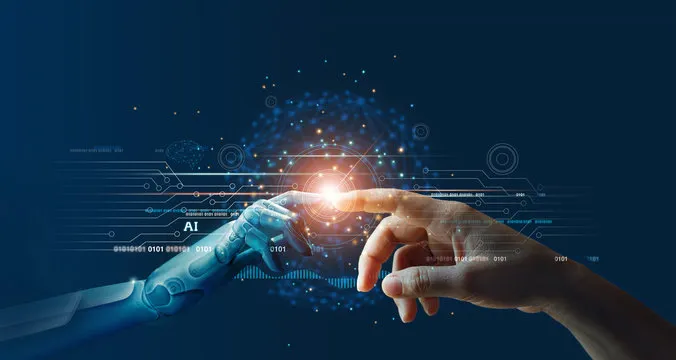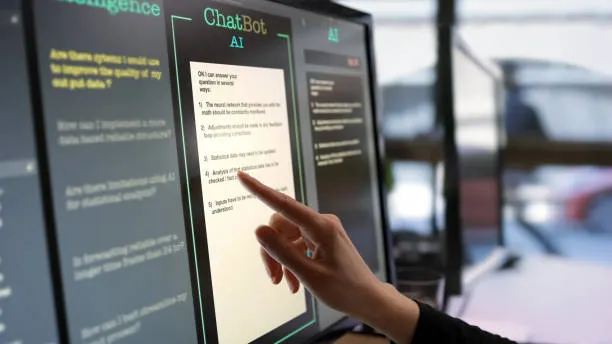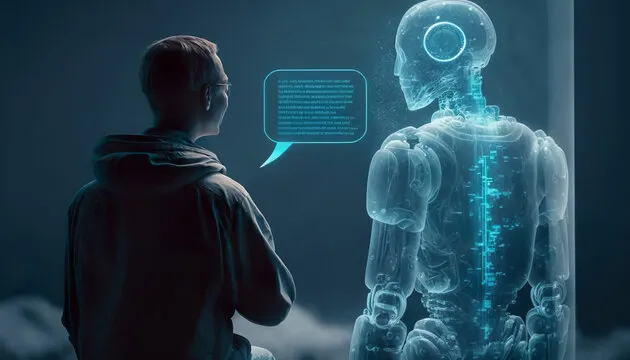AI – A Boon or a Threat?
Artificial Intelligence (AI) is evolving at an unprecedented speed. From self-driving cars to AI-powered healthcare, this technology is revolutionizing almost every aspect of human life. But with great power comes great responsibility. As AI becomes more advanced, ethical concerns grow louder.
- Should AI have the right to make life-altering decisions?
- How do we ensure AI systems remain unbiased?
- At what point does AI become a risk to humanity?
These are just a few of the pressing moral dilemmas we face today. Let’s dive deeper into the ethics of AI and explore where we should draw the line.

1. AI and Human Jobs: Automation vs. Unemployment
One of the biggest ethical concerns surrounding AI is its impact on employment.
📌 The Rise of Automation
- AI is replacing human jobs in industries like manufacturing, customer service, and even creative fields like writing and design.
- While automation increases efficiency and reduces costs for businesses, it leaves millions of workers struggling to find employment.
📌 The Ethics of Job Replacement
- Should companies be allowed to replace human workers entirely with AI?
- How do we ensure a fair transition for workers losing their jobs?
- Will AI create new jobs to balance the losses?
Many experts believe that reskilling and upskilling programs must be implemented to help workers transition into AI-driven industries.

2. AI Bias and Discrimination: Can We Trust AI to Be Fair?
AI systems are only as good as the data they are trained on. Unfortunately, biased data can lead to unfair outcomes.
📌 Real-Life Cases of AI Discrimination
- Facial recognition AI has been found to have higher error rates when identifying people of color.
- AI-powered hiring tools have shown bias against women and minority groups due to historical data patterns.
📌 Ethical Concerns
- How do we prevent AI from inheriting human prejudices?
- Who is responsible when AI makes a biased decision?
- Should AI undergo ethical auditing before being deployed?
AI developers must ensure that their systems are trained on diverse and inclusive data to prevent discrimination.

3. AI in Warfare: Should Machines Decide Who Lives or Dies?
One of the most controversial applications of AI is in military and defense.
📌 The Rise of Autonomous Weapons
- AI-powered drones and robotic soldiers can operate without human intervention.
- Some countries are developing AI-driven weapons that can identify and attack targets autonomously.
📌 The Moral Dilemma
- Should AI be given the power to make life-or-death decisions?
- Who is accountable if an AI weapon makes a mistake?
- Will AI warfare lead to mass destruction with minimal human control?
Many experts argue that autonomous weapons should be banned to prevent a future where war is fought entirely by machines.
4. AI and Privacy: How Much Does AI Know About Us?
AI is deeply embedded in our daily lives, from voice assistants to social media algorithms. But this raises serious privacy concerns.
📌 AI Surveillance and Data Collection
- Tech giants use AI to track user behavior, preferences, and even emotions.
- Governments are using AI-powered surveillance systems to monitor citizens.
📌 Ethical Questions
- Is AI invading our privacy without consent?
- Should companies be allowed to sell personal data collected by AI?
- How can we regulate AI-driven surveillance without compromising security?
To address these concerns, strict data protection laws and transparency in AI usage must be enforced.

5. AI in Healthcare: Saving Lives or Playing God?
AI has the potential to revolutionize healthcare, but ethical dilemmas persist.
📌 The Pros of AI in Medicine
- AI can diagnose diseases faster and more accurately than human doctors.
- Robotic surgeries powered by AI reduce human errors.
- AI chatbots provide mental health support and medical advice.
📌 The Ethical Challenges
- Should AI be allowed to make medical decisions without human supervision?
- Who is responsible if an AI misdiagnoses a patient?
- Can AI doctors replace human doctors entirely?
While AI enhances healthcare efficiency, human oversight remains essential to ensure ethical decision-making.
6. AI and Creativity: Can AI Replace Human Artists?
AI is now capable of writing books, composing music, and creating digital art. But does AI-generated content have real artistic value?
📌 AI in the Creative World
- AI tools like ChatGPT can write articles, poetry, and even movie scripts.
- AI-generated music and paintings are becoming more popular.
📌 The Ethical Debate
- Should AI-generated art be considered “real” art?
- Who owns the rights to AI-created content?
- Will AI replace human creativity, or will it be a tool for inspiration?
Many artists argue that AI lacks emotional depth, while others see it as a powerful tool to enhance creativity.
7. The Future of AI: Regulation and Ethics
As AI continues to evolve, governments and organizations are working on policies to ensure ethical AI development.
📌 Key Areas of Regulation
- Transparency: Companies must disclose how their AI systems work.
- Accountability: Clear responsibility must be assigned in case of AI failures.
- Ethical AI Development: AI should be designed with fairness and inclusivity in mind.
📌 The Role of Global Cooperation
- Should there be universal AI laws to prevent misuse?
- How can we balance AI innovation with ethical responsibility?
- What role do tech giants play in shaping AI ethics?
Many believe that a global AI ethics framework is needed to ensure that AI benefits humanity while minimizing harm.
Conclusion: Where Do We Draw the Line?
Artificial Intelligence is a double-edged sword. While it has the potential to transform industries, improve healthcare, and enhance creativity, it also poses serious ethical challenges. The key to ethical AI development lies in:
✅ Transparency in AI decision-making
✅ Strict regulations to prevent misuse
✅ Human oversight in critical AI applications
✅ Responsible AI training to eliminate bias
As AI continues to shape our world, it is up to us to ensure that it is used ethically and responsibly. The question remains—where do we draw the line?
Final Thoughts
The ethical debate on AI will only intensify as technology advances. Governments, tech companies, and individuals must work together to create a future where AI serves humanity without compromising ethics.
What do you think? Should AI have limitations, or should we embrace its full potential? Let us know your thoughts in the comments! 🚀💭






